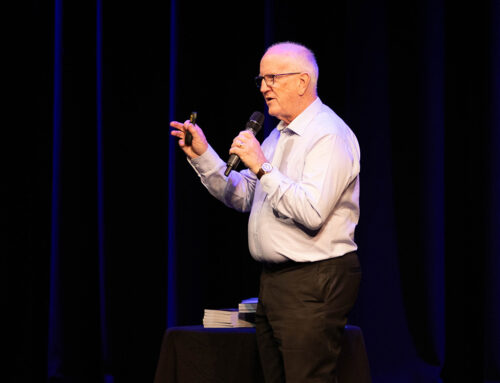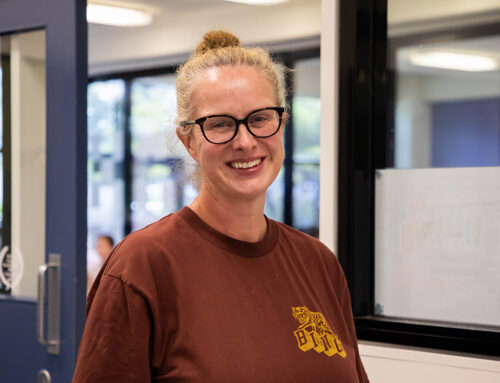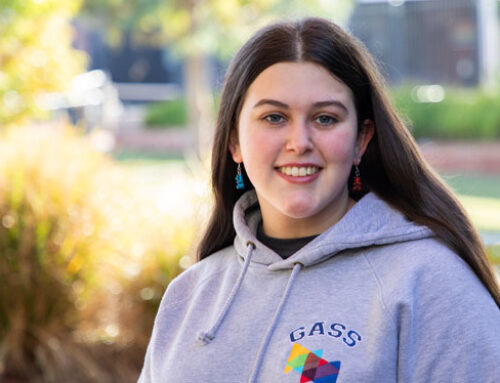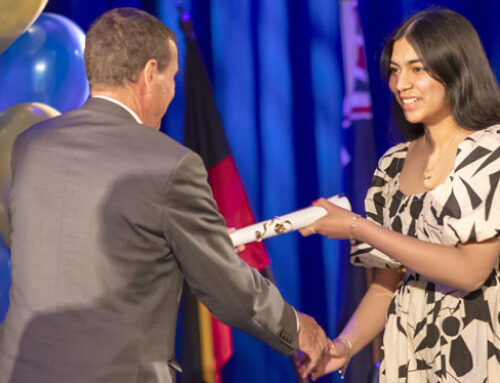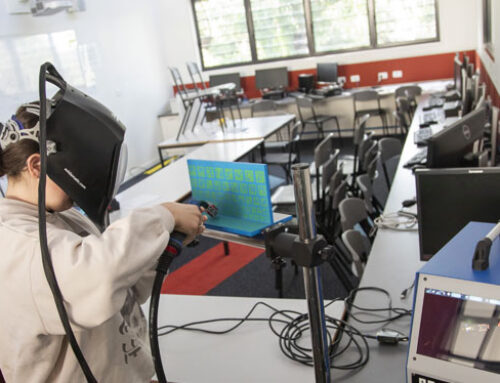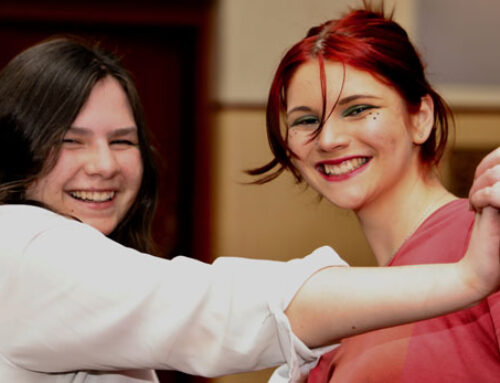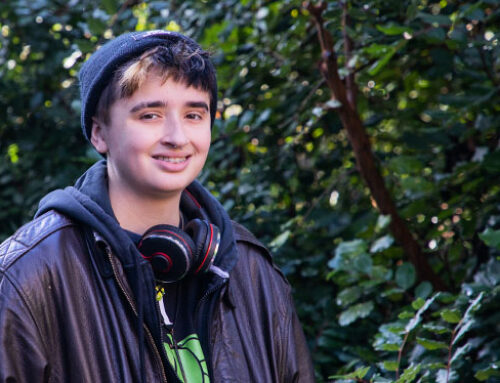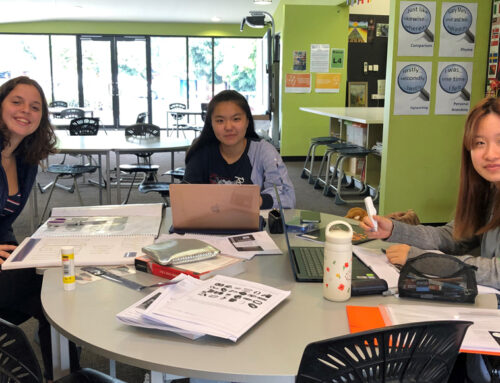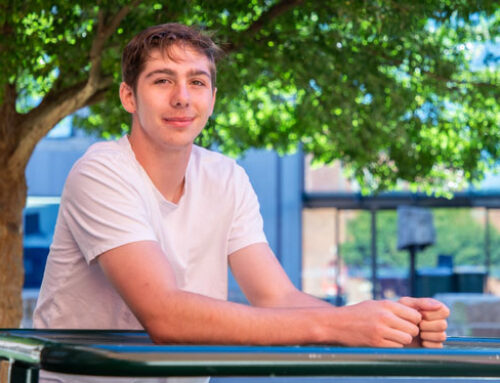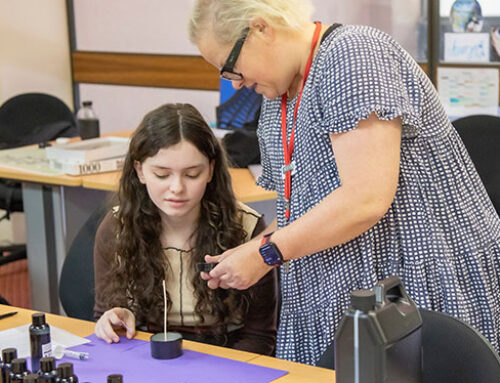On her sixteenth birthday, Philippa Bywaters cut off her incredibly long hair so she could donate it to those who make wigs for children suffering from alopecia—often the result of chemotherapy cancer treatment.
When she reflects, Philippa knows she hasn’t always had this level of empathy or insight—the understanding that her life could make a difference to others.
“If I could go back and talk to my twelve-year-old self—the same age of some of those kids suffering with alopecia—I would tell myself to be a kinder, more empathetic person,” she says.
“Back then, I saw life as something that happened to me… it took some time to realise I could influence situations and how things unfolded for others. Life is only as good your mindset.”
Now studying Year 12 at BSSC, Philippa has her mind set on making the most of the opportunities before her.
“I value education immensely, so I was looking forward to the challenges of being at Senior and now I want to embrace every one of them,” she says.
Philippa loves the structure of her classes—being an independent learner, yet supported so well by her teachers.
“Their motivation, passion and interest in understanding how each student ticks has been amazing,” she says. “It really motivates me to learn.”
Philippa cites the ‘modelling’ of positive attitudes as very inspirational. She admires Jane, her Year 11 Chemistry teacher, both for her passion for the subject, and her ability to remain lighthearted.
“She is one of the best people I’ve ever met,” Philippa says.
This year, Barnaby is her Chemistry teacher and she is appreciating the deep understanding he is able to pass on to the students.
Despite her enjoyment of Chemistry, Biology is Philippa’s clear favourite. Megan, her Biology teacher, inspired her love the subject even more. Having completed Units 3/4 last year, Philippa finds herself missing it.
“I have friends who are studying Biology this year,” she says, “and I’m always asking what they’re doing, wanting to engage with the content.”
In fact, she loves it enough to make a career from it. Philippa plans to study Biomedical Science after Year 12—aware that a grounding in science can take her in so many different directions—even into teaching, her childhood dream-job.
She is also passionate about the Humanities and sees being educated in both Science and the Arts as a valuable way to create balance and understanding in the world.
“I think big changes are more likely when decision-makers have a wider understanding,” she says.
Her own heritage and life experience have led her to have an interesting perspective on the world. Born in Changsha in Hunan, China, Philippa was adopted by her Australian parents when she was 18 months old. It’s possible, she speculates, that her biological parents gave her up due to the one-child policy in China. And, while she can see the benefits of such a policy, it’s a strange feeling to contemplate the consequences for herself and other individuals.
Philippa has always known she was adopted, but it was a visit to China in Year 9 that was “so big” for her as she thought more seriously about “the entire other life” she might have lived.
“The trip was so much fun because I was with my school friends, the places we visited were amazing and my host family was just lovely,” she says. “But the trip was also filled with ‘could-have-beens’ as I wondered what a life growing up in China might have been like.”
Growing up in Australia, Philippa endured her fair share of racial slurs when she was younger—“mostly ignorant kids not realising how hurtful they were being”. Despite it all, she still feels lucky.
“I could have landed anywhere in the world. But I ended up in ‘the land of opportunity’ and am so grateful to my parents and all they have given me,” she says. “My mum is so kind-hearted and such an important role-model for me.”
Philippa also studied VET Chinese Language and will apply for one of the Chinese study scholarships, hoping to spend a year at a Chinese university before launching into her tertiary studies in Australia.
Right now, Philippa says she is 98% focused on her studies. It has put pressure on her social life and led her to give up competitive dance. She has been dancing since she was little, and her talent extends to jazz, ballet, tap (her favourite) and theatrical dance.
On top of her study commitments, she has two part-time jobs; one at Cold Rock and the other a tutoring role.
“I really enjoy both jobs,” she says. “It’s great to have that break from school and the study routine.”
Philippa tries to get as much of her homework done at school as she possibly can.
“I love hanging out with a very close, small group of friends on weekends whenever I can,” she says. “Getting my homework done during the week makes weekends more fun.”
Her hot study tip is to write out a homework plan so that really important deadlines are prioritised.
“It prevents the stress of suddenly realising something critical is due the next day,” she says. “I also think it is great when students help each other.”
Her third suggestion is to “utilise your teachers”.
“Make sure you understand the content,” she says. “Ask questions. Don’t brush things aside and think you’ll just somehow ‘get it’ as you go along.”
On a global level, Philippa is trying to do her bit for the environment by choosing to be vegan.
“So much more needs to be done,” she acknowledges, “but veganism may turn out to be logistically and practically essential given the way we are using land for animal agriculture is not sustainable.”
Of course, climate change is a big one for most young people and Philippa believes much more needs to be done, including governments being more respectful of the scientists working in this area.
While Philippa admires Greta Thunberg, she does not idolise individuals as much as she appreciates anyone who is really putting in. This includes those who have worked so hard to make it easier for women to enter into science fields right across the spectrum.
“This impacts me directly, of course,” she says with a grin.
“We live in a time when we have so many resources, opportunities and interconnection—so much understanding about world issues—we should make the most of all we have.”


